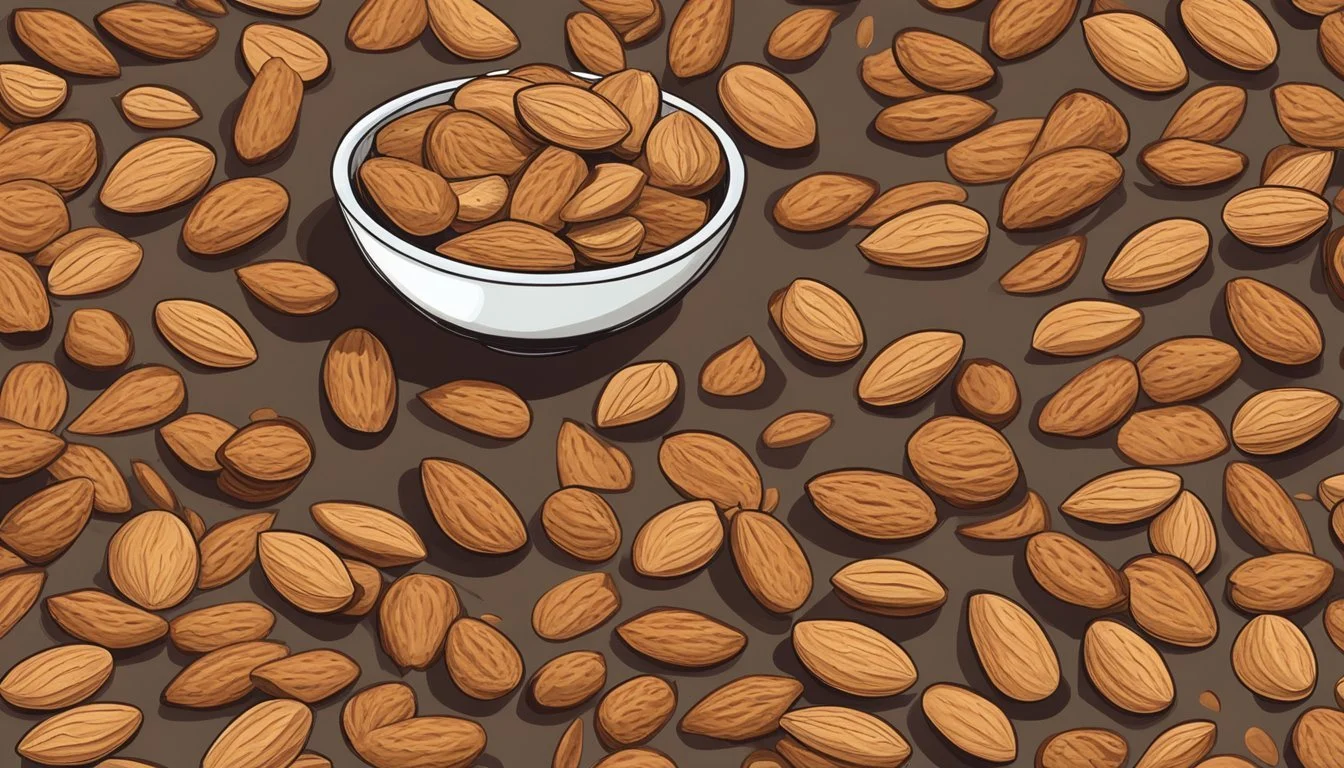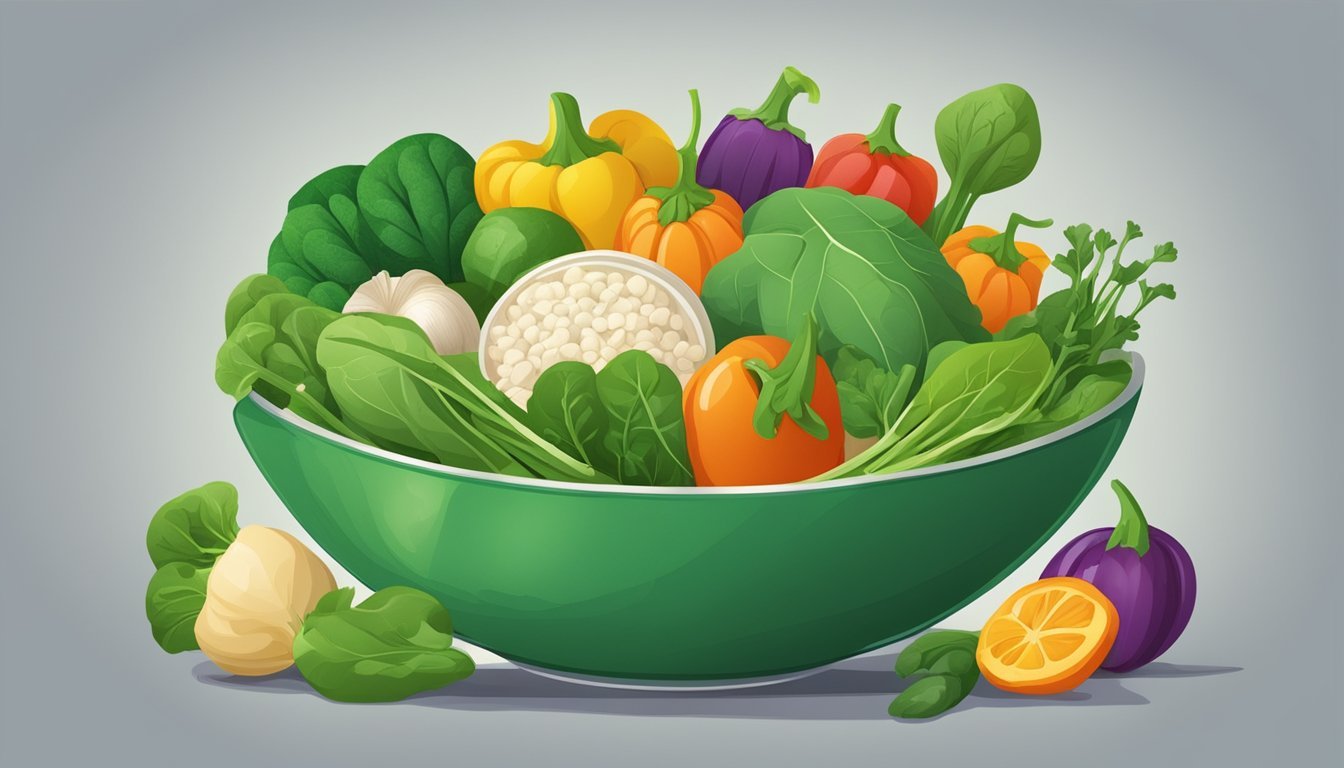15 High-Fiber, Low-Carb Foods for a Balanced Diet
Top Choices for a Balanced Diet
Balancing a diet with foods that are high in fiber yet low in carbohydrates can play a crucial role in maintaining overall health and managing weight. High-fiber foods aid in digestion, regulate blood sugar levels, and can help keep one feeling full longer, which is an important factor for anyone following a low-carb diet. Understanding which foods offer these benefits can empower individuals to make healthier dietary choices without sacrificing their nutritional goals.
Incorporating foods that meet these criteria can support various health objectives, from improving gut health to managing carb intake for those on ketogenic or other low-carb diets. High-fiber, low-carb foods provide a sustainable way to satisfy hunger and maintain energy levels without the spikes and crashes associated with high-carb meals. By focusing on these nutrient-rich options, individuals can enjoy a balanced and satisfying diet.
1) Avocados
Avocados are a unique fruit that stands out for their high fiber content and low carbohydrate levels.
A medium avocado contains about 13 grams of carbohydrates, with a significant portion being fiber. Approximately 79% of the carbohydrates in avocados are fiber, making them an excellent choice for those looking to increase their fiber intake.
A 100-gram serving of avocado provides 6.7 grams of fiber, fulfilling about 24% of the daily recommended value. This makes avocados a particularly fiber-rich food that can aid digestion and promote a feeling of fullness.
In addition to fiber, avocados are low in naturally occurring sugars and do not impact the glycemic response. This characteristic makes them suitable for individuals monitoring their blood sugar levels.
Avocados are also rich in healthy fats, particularly monounsaturated fats, which contribute to various health benefits. While they are often touted for their nutrient density, the high fiber content is a standout feature for those aiming to eat healthily while managing carbohydrate intake.
2) Chia Seeds
Chia seeds are an excellent choice for those seeking high-fiber, low-carb foods. Each ounce (28 grams) of chia seeds contains about 138 calories, making it a nutrient-dense option for various diets, including ketogenic and low-carb.
By weight, chia seeds are 46% carbohydrates, of which 83% is fiber. This makes them incredibly rich in dietary fiber. They also provide around 34% fat and 19% protein, offering a well-rounded nutrient profile.
With only 1 net carb per two-tablespoon serving, chia seeds are perfect for those monitoring their carbohydrate intake. The high fiber content aids in digestion and can help maintain a feeling of fullness.
Chia seeds are versatile and can be incorporated into a variety of dishes. They can be sprinkled over salads, mixed into yogurt, or added to smoothies. Their ability to absorb liquid makes them an excellent thickening agent for puddings and sauces.
In addition to fiber and low carbs, chia seeds offer other beneficial nutrients like calcium, omega-3 fatty acids, and antioxidants. This makes them a powerhouse of nutrition, supporting bone health, reducing inflammation, and providing essential nutrients.
For anyone looking to boost their fiber intake while keeping carbs low, chia seeds are an ideal addition to their diet.
3) Flaxseeds
Flaxseeds are a powerful high-fiber, low-carb food choice. A single tablespoon of whole flaxseeds contains almost 3 grams of fiber and just a small amount of sugar. This makes them an excellent addition to diets focused on digestive health and blood cholesterol regulation.
Each tablespoon of flaxseeds delivers 55 calories and a good balance of macronutrients. They are composed of 42% fat, 29% carbs, and 18% protein. This makes flaxseeds not only high in fiber but also a robust source of healthy fats and plant-based protein.
Integrating flaxseeds into meals is simple. They can be sprinkled over cereals, yogurt, or salads. Flaxseed meal can also be mixed into smoothies, baked goods, or used as an egg substitute in vegan recipes. The versatility of flaxseeds allows them to be incorporated into a variety of dietary plans.
For those on a ketogenic diet, flaxseeds are particularly valuable. Their low net carb content and high fiber make them suitable, even for strict carb limits. This ensures that individuals can maintain ketosis without sacrificing essential fiber intake.
4) Almonds
Almonds stand out as a high-fiber, low-carb option, making them a valuable addition to many diets.
A one-ounce serving of almonds contains about 3.5 grams of fiber and just 2.7 grams of net carbs. This ratio helps support digestion while minimizing carbohydrate intake.
Almonds are rich in heart-healthy fats. These fats contribute to lower LDL cholesterol levels, which is beneficial for heart health.
In addition to fiber, almonds offer significant amounts of vitamin E and magnesium. These nutrients support immune function and bone health.
Their versatility is another plus. They can be eaten raw, roasted, or incorporated into various recipes. Almonds are also a staple in many low-carb snacks and meals.
5) Raspberries
Raspberries are a delightful addition to a high-fiber, low-carb diet. They offer an abundance of nutrients while remaining low in calories and carbohydrates.
One cup of fresh raspberries provides approximately 64 calories, making them a light and refreshing snack. This serving size also contains 14.7 grams of carbohydrates but boasts 8 grams of fiber.
The high fiber content helps manage blood sugar levels by slowing down carbohydrate absorption. This makes raspberries suitable even for strict low-carb or ketogenic diets, in moderation.
Raspberries are also packed with vitamins and minerals. They are particularly high in vitamin C, which supports immune health and skin vitality. Additionally, they contain small amounts of protein and fat, adding to their nutritional value.
In summary, raspberries offer a nutritious, fiber-rich option for those seeking to manage their carbohydrate intake.
6) Artichokes
Artichokes provide a flavorful and nutritious option for those seeking high fiber, low carb foods. Each medium artichoke contains about 64 calories and 14.4 grams of carbohydrates. Importantly, the net carbs are reduced to 7.5 grams due to the high fiber content.
These vegetables are an excellent source of dietary fiber, aiding in digestion and maintaining healthy blood sugar levels. They also support heart health by contributing to cholesterol management.
In addition to fiber, artichokes offer essential vitamins and minerals. They provide a good amount of vitamin C, potassium, and magnesium. The potassium helps regulate blood pressure while magnesium supports bone health and muscle function.
Artichokes are versatile in culinary applications. They can be boiled, steamed, grilled, or used as an addition to various dishes. Their unique taste and texture make them a favorite for many recipes.
For those following a keto diet, artichokes can be included in moderation. The fiber content makes them a satisfying choice without a significant carb load. This versatility and health benefits make artichokes a valuable addition to a fiber-rich, low-carb diet.
7) Coconut Flour
Coconut flour is a versatile ingredient known for its high fiber content and low carbohydrate levels. It has gained popularity among those looking to manage their blood sugar levels due to its ability to slow the digestion of carbohydrates into glucose.
A 1/4-cup serving of coconut flour contains approximately 120 calories. This serving size also provides a substantial amount of fiber, potassium, iron, and plant-based protein, making it nutritionally impressive.
Medium-chain triglycerides (MCTs) are another significant component of coconut flour. MCTs are known to aid metabolism and act as vital nutrient and metabolic regulators in the body.
For individuals on low-carb or ketogenic diets, coconut flour is an excellent substitute for regular or wheat flour. With only 2.2 grams of net carbs per tablespoon, it's ideal for maintaining a low carbohydrate intake.
Coconut flour is used in various recipes, including both sweet and savory baked goods, soups, and sauces. Its unique texture and flavor add a desirable quality to many dishes, catering to diverse culinary preferences.
8) Pumpkin Seeds
Pumpkin seeds are a powerhouse of nutrients and a great addition to a fiber-rich, low-carb diet.
Packed with protein, healthy fats, and fiber, these seeds provide about 4 grams of net carbs per ounce. This makes them suitable for ketogenic and low-carb diet plans.
In addition to their nutritional profile, pumpkin seeds are rich in omega-3 and omega-6 fatty acids. These fatty acids are beneficial for overall heart health and can help in reducing inflammation.
They also contain important minerals like magnesium, iron, and zinc. This combination supports various bodily functions, including immune response and bone health.
Besides their health benefits, pumpkin seeds are versatile in culinary uses. They can be added to salads, mixed into yogurts, or enjoyed as a convenient snack.
Eating pumpkin seeds can contribute to lowering triglyceride levels, making them heart-friendly.
Overall, pumpkin seeds offer a nutritious, high-fiber, low-carb option for enhancing diet quality and supporting health goals.
9) Spinach
Spinach stands out as an excellent high-fiber, low-carb food. A serving of 3.5 ounces (100 grams) of raw spinach contains around 2.2 grams of fiber and only 3.6 grams of total carbohydrates. This makes it a great choice for those looking to increase their fiber intake without significantly adding to their carb count.
In addition to being low in carbs and high in fiber, spinach is packed with other nutrients. It contains vitamins A, C, and K, as well as folate, iron, and calcium. These nutrients contribute to various health benefits, including improved vision, bone health, and overall vitality.
Spinach also has a high water content, which helps in hydration and can aid in digestion. Its versatile nature allows it to be used in salads, smoothies, and cooked dishes, making it easy to incorporate into any meal plan focused on high fiber and low carbs.
Given its low calorie content and nutrient density, spinach can be a staple for those on ketogenic or other low-carb diets. It provides essential nutrients without compromising dietary goals related to carbohydrate intake.
10) Zucchini
Zucchini is a versatile vegetable known for its low calorie and low carbohydrate content. It contains approximately 3.9 grams of carbohydrates per 124 grams, with around 1 gram of dietary fiber. This makes zucchini a fitting choice for those looking to reduce carbs while increasing fiber intake.
Rich in vitamins and minerals, zucchini provides significant amounts of vitamins B6, C, and A. It is also a good source of potassium and folate. These nutrients contribute to various bodily functions, including immune support and cellular health.
Cooking does not significantly alter the carbohydrate or fiber content of zucchini. It can be enjoyed raw, grilled, sautéed, or added to soups and stews. This adaptability makes it a staple in many low-carb, high-fiber meal plans.
Understanding High Fiber, Low Carb Foods
High fiber, low carb foods have a unique place in dietary planning. They offer health benefits, especially for digestive health, and play a crucial role in managing carbohydrate intake effectively.
Health Benefits
High fiber, low carb foods are highly beneficial for digestive health. Fiber aids in digestion by adding bulk to stool, which helps prevent constipation. Additionally, it can reduce the risk of developing certain digestive disorders, such as diverticulitis.
Weight management is another significant benefit. Foods high in fiber tend to be more filling, which helps control hunger and reduce overall calorie intake. This can aid in weight loss or maintenance, making them a valuable part of a balanced diet.
Moreover, these foods can improve blood sugar control. Fiber slows down the digestion and absorption of carbohydrates, leading to more stable blood sugar levels. This is particularly advantageous for individuals managing diabetes or insulin resistance.
How Fiber and Carbs Interact
Fiber and carbs interact in ways that significantly impact nutritional intake. Fiber is a type of carbohydrate, but unlike sugars and starches, it isn't fully digested by the body. This fact reduces the net carb content of high-fiber foods, which is beneficial for low-carb diets.
Net carbs are calculated by subtracting fiber from the total carbohydrate content. For example, if a food has 10 grams of carbs and 6 grams of fiber, it has 4 grams of net carbs. This calculation shows the true impact on blood sugar levels.
High-fiber foods such as flax seeds, blackberries, and broccoli are notable for their low net carb content. This makes them excellent choices for those following ketogenic or other low-carb diets. By including these foods, one can maintain a diverse and nutritious diet without exceeding carbohydrate limits.
Nutritional Strategies
Balancing fiber and carb intake is essential for anyone looking to maintain a low-carb diet without sacrificing essential nutrients. Incorporating these foods into daily meals can be straightforward and beneficial for overall health.
Balancing Fiber and Carb Intake
Balancing fiber and carb intake involves selecting foods that offer high fiber and low carbohydrates. Vegetables like broccoli, artichokes, and kale are ideal because they provide significant fiber without spiking carb counts.
A useful strategy is to track the fiber and carbohydrate content of foods. For example, blackberries and raspberries are suitable for ketogenic diets as they can be consumed in moderation due to their low carb and high fiber content.
Flax seeds are also excellent due to their minimal carbs and substantial fiber. Including a variety of such foods ensures a balanced diet, maintaining digestive health while keeping carbohydrate levels in check.
Incorporating Into Your Diet
Integrating high-fiber, low-carb foods can be simple. Start by adding vegetables like broccoli and kale to your meals. These can be steamed, sautéed, or added to salads for a fiber boost.
Another way to incorporate these foods is by snacking on blackberries and raspberries. They can be eaten fresh or added to yogurt for a nutritious snack.
Flax seeds can be easily added to smoothies, oatmeal, or baked goods. Using these seeds in everyday recipes boosts fiber intake without increasing carbohydrate consumption drastically.
These strategies ensure a varied and balanced diet that supports both fiber needs and low-carb requirements.






